Story by Christian Guyton
Yesterday
TechRadar

null© Shutterstock
Everybody loves ChatGPT, the fun AI chatbot that can help you write an essay, find your dream home, or, uh, create harmful malware. Whatever your opinion of the internet’s favorite chatty AI, there’s no denying that it’s here to stay - worming its way into every aspect of our increasingly-online society.
Now, there are plenty of prominent figures who have warned us about the dangers of AI - most recently Geoffrey Hinton, the ‘Godfather of AI’, and OpenAI founder Sam Altman, the latter of whom stated in a US Senate hearing that “regulatory intervention by governments will be critical to mitigating the risks” of advanced AI models.
I won’t lie, I’ve been worried about it myself; not least because ChatGPT could probably write this article you’re reading right now, and it could do it a lot faster than me. I’ve experimented thoroughly with AI, though, and I’m not that worried about it all. I do worry about the nefarious stuff people could do with AI tools, but I don’t blame AI for that - that would be like banning cars because bank robbers can use them as getaway vehicles.
There is, however, one really big problem with the current explosion of AI technology, and it’s one that almost nobody seems to be talking about. Even I didn’t properly know about it until I did some research recently. AI models like ChatGPT need to be ‘trained’ in order to function, and that takes three things: a lot of training data, a lot of hardware, and a lot of electricity.
For the planet
I’ll be honest here: I’m probably not as committed an environmentalist as I probably should be in this day and age. I do recycle as much as possible, I compost my garden and food waste, and I try to avoid running the heaters in my house as much as possible (though I confess, this is more motivated by the rising cost of my utility bills).
But as a tech journalist and general gadget fiend, I’m not exactly saving the planet. I’m running a powerful PC for many hours a day, and I own a car for driving to the office and picking up groceries. I do try to minimize my carbon footprint where I can, though - as we all should.
AI, as it turns out, has a pretty damn big carbon footprint. This wasn’t true until recently, with the release of ChatGPT to the public spurring a mass wave of copycats like Google Bard and widespread interest in generative AI across a variety of business sectors. The AI industry has boomed - and so too have its emissions.
How much power does an AI need?
Did you know that a single Google search produces approximately 0.2g of carbon dioxide? That’s not a direct link; Google isn’t shooting a tiny droplet of CO2 into the atmosphere every time you search ‘chinese food near me’. It’s based on the amount of electricity a Google search uses; using search engines is a relatively resource-intensive internet activity, whereas firing out a post on Twitter uses a tenth of that at 0.02g.
Asking a generative AI bot like ChatGPT one question? Well, that could produce as much as five times the amount of carbon emissions, according to CarbonCredits.com. Let’s assume it’s one gram of CO2 per query, then. While OpenAI has not released official figures on how many queries ChatGPT handles per day, estimates have placed it at anywhere between 100 million and one billion individual responses.
So we’re already looking at up to a million kilos of CO2 emissions every single day. That’s based on the electricity required to use a large language AI model like ChatGPT, but it’s not the whole story. Developing and training AI models also comes at a cost of emissions; according to the MIT Technology Review, training just one AI model can produce as much CO2 as five regular cars will in their entire operating lifetime.
Even setting aside the raw cost of energy emissions, we also have to bear in mind that training and running these AIs also requires a vast amount of physical hardware. We’ve already seen industry-leading GPU maker Nvidia committing to AI development, and rival AMD is teaming up with Microsoft to join the AI arms race.
While this has obvious ramifications for consumers as companies like Nvidia turn away from their gaming and creative customers in favor of selling to AI developers, it’s also important to consider the impact that producing components like the best graphics cards has on the planet. These products use specific rare-earth metals in their construction - and the rare-earth mining pits used to gather them can have devastating ecological impacts.
A glimmer of hope
Ironically, AI could be both a contributor to and the solution to our current global state of environmental decline. Despite its high cost of emissions, people are already implementing AI tools in the fight against climate change.
David Jensen, a coordinator at the United Nations Environment Program (UNEP), notes that AI could prove instrumental in reducing emissions over the next few years. “This can be on a large scale, such as satellite monitoring of global emissions, or a more granular scale, such as a smart house automatically turning off lights or heat after a certain time,” he explains.
The UNEP has also developed an AI-powered ‘World Environment Situation Room’, which Jensen believes can become a “mission control center for planet earth” with future advancements in AI technology. The Situation Room uses AI to expedite environmental monitoring tasks, such as tracking methane emissions and air quality around the world.
And after all, we can’t solely blame AI models for having high carbon emissions when they’re using electricity provided by energy companies willing to keep burning fossil fuels. It’s difficult to reliably source electricity from renewable sources, especially when ‘dirty’ energy sources are often cheaper - thanks for that one, oil lobbyists. It’s somewhat telling that the White House’s ‘AI Bill of Rights’ doesn’t really address ecological concerns surrounding AI.
I don’t like being a climate doomsayer. The facts don’t lie, however; things are going to get worse if we don’t change our path. Perhaps AI really can be used to combat an impending climate disaster, though. I certainly hope so, because I’m a big believer in the ways in which AI truly can benefit our society - I just don’t think chatbots are the way to do it. Certainly not nonsense like Elon Musk’s planned ‘anti-woke’ AI, anyway…
TechRadar

null© Shutterstock
Everybody loves ChatGPT, the fun AI chatbot that can help you write an essay, find your dream home, or, uh, create harmful malware. Whatever your opinion of the internet’s favorite chatty AI, there’s no denying that it’s here to stay - worming its way into every aspect of our increasingly-online society.
Now, there are plenty of prominent figures who have warned us about the dangers of AI - most recently Geoffrey Hinton, the ‘Godfather of AI’, and OpenAI founder Sam Altman, the latter of whom stated in a US Senate hearing that “regulatory intervention by governments will be critical to mitigating the risks” of advanced AI models.
I won’t lie, I’ve been worried about it myself; not least because ChatGPT could probably write this article you’re reading right now, and it could do it a lot faster than me. I’ve experimented thoroughly with AI, though, and I’m not that worried about it all. I do worry about the nefarious stuff people could do with AI tools, but I don’t blame AI for that - that would be like banning cars because bank robbers can use them as getaway vehicles.
There is, however, one really big problem with the current explosion of AI technology, and it’s one that almost nobody seems to be talking about. Even I didn’t properly know about it until I did some research recently. AI models like ChatGPT need to be ‘trained’ in order to function, and that takes three things: a lot of training data, a lot of hardware, and a lot of electricity.
For the planet
I’ll be honest here: I’m probably not as committed an environmentalist as I probably should be in this day and age. I do recycle as much as possible, I compost my garden and food waste, and I try to avoid running the heaters in my house as much as possible (though I confess, this is more motivated by the rising cost of my utility bills).
But as a tech journalist and general gadget fiend, I’m not exactly saving the planet. I’m running a powerful PC for many hours a day, and I own a car for driving to the office and picking up groceries. I do try to minimize my carbon footprint where I can, though - as we all should.
AI, as it turns out, has a pretty damn big carbon footprint. This wasn’t true until recently, with the release of ChatGPT to the public spurring a mass wave of copycats like Google Bard and widespread interest in generative AI across a variety of business sectors. The AI industry has boomed - and so too have its emissions.
How much power does an AI need?
Did you know that a single Google search produces approximately 0.2g of carbon dioxide? That’s not a direct link; Google isn’t shooting a tiny droplet of CO2 into the atmosphere every time you search ‘chinese food near me’. It’s based on the amount of electricity a Google search uses; using search engines is a relatively resource-intensive internet activity, whereas firing out a post on Twitter uses a tenth of that at 0.02g.
Asking a generative AI bot like ChatGPT one question? Well, that could produce as much as five times the amount of carbon emissions, according to CarbonCredits.com. Let’s assume it’s one gram of CO2 per query, then. While OpenAI has not released official figures on how many queries ChatGPT handles per day, estimates have placed it at anywhere between 100 million and one billion individual responses.
So we’re already looking at up to a million kilos of CO2 emissions every single day. That’s based on the electricity required to use a large language AI model like ChatGPT, but it’s not the whole story. Developing and training AI models also comes at a cost of emissions; according to the MIT Technology Review, training just one AI model can produce as much CO2 as five regular cars will in their entire operating lifetime.
Even setting aside the raw cost of energy emissions, we also have to bear in mind that training and running these AIs also requires a vast amount of physical hardware. We’ve already seen industry-leading GPU maker Nvidia committing to AI development, and rival AMD is teaming up with Microsoft to join the AI arms race.
While this has obvious ramifications for consumers as companies like Nvidia turn away from their gaming and creative customers in favor of selling to AI developers, it’s also important to consider the impact that producing components like the best graphics cards has on the planet. These products use specific rare-earth metals in their construction - and the rare-earth mining pits used to gather them can have devastating ecological impacts.
A glimmer of hope
Ironically, AI could be both a contributor to and the solution to our current global state of environmental decline. Despite its high cost of emissions, people are already implementing AI tools in the fight against climate change.
David Jensen, a coordinator at the United Nations Environment Program (UNEP), notes that AI could prove instrumental in reducing emissions over the next few years. “This can be on a large scale, such as satellite monitoring of global emissions, or a more granular scale, such as a smart house automatically turning off lights or heat after a certain time,” he explains.
The UNEP has also developed an AI-powered ‘World Environment Situation Room’, which Jensen believes can become a “mission control center for planet earth” with future advancements in AI technology. The Situation Room uses AI to expedite environmental monitoring tasks, such as tracking methane emissions and air quality around the world.
And after all, we can’t solely blame AI models for having high carbon emissions when they’re using electricity provided by energy companies willing to keep burning fossil fuels. It’s difficult to reliably source electricity from renewable sources, especially when ‘dirty’ energy sources are often cheaper - thanks for that one, oil lobbyists. It’s somewhat telling that the White House’s ‘AI Bill of Rights’ doesn’t really address ecological concerns surrounding AI.
I don’t like being a climate doomsayer. The facts don’t lie, however; things are going to get worse if we don’t change our path. Perhaps AI really can be used to combat an impending climate disaster, though. I certainly hope so, because I’m a big believer in the ways in which AI truly can benefit our society - I just don’t think chatbots are the way to do it. Certainly not nonsense like Elon Musk’s planned ‘anti-woke’ AI, anyway…




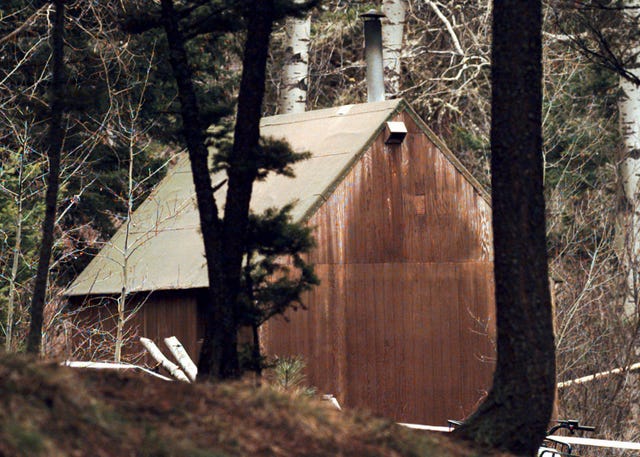







:quality(70)/cloudfront-eu-central-1.images.arcpublishing.com/thenational/HZ3RZ3CPUHX5ISM7SINR5XAQVQ.jpg)

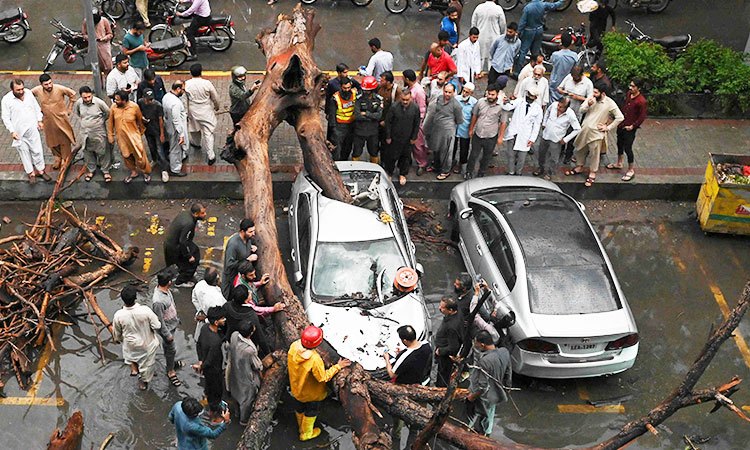

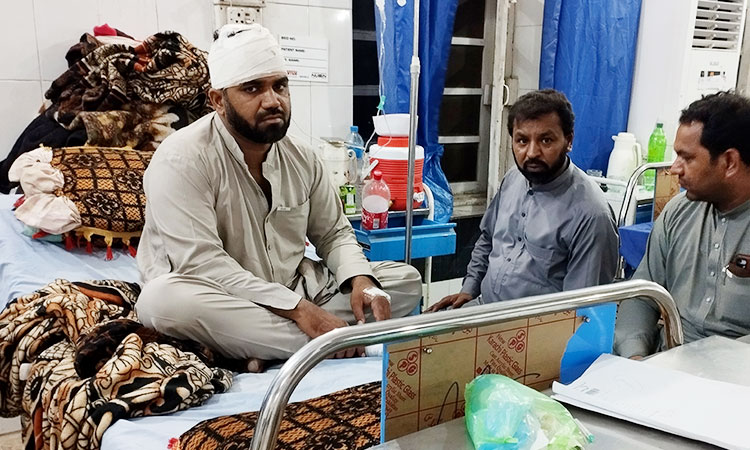

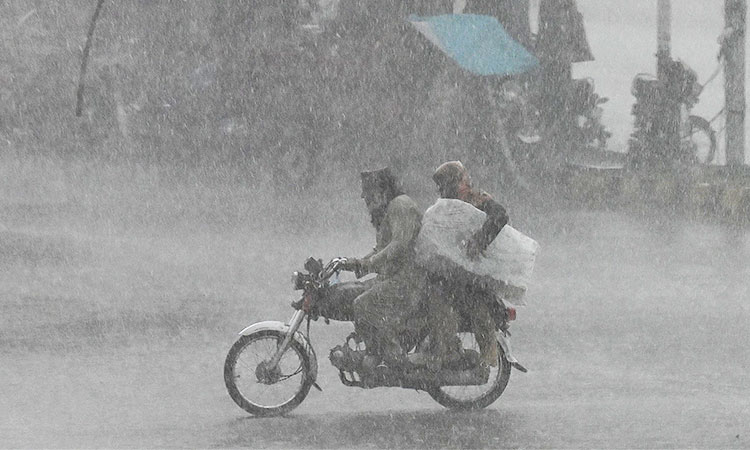


:quality(70)/cloudfront-eu-central-1.images.arcpublishing.com/thenational/OHXKDOOFL6GGFGUH2XTPPWSDGM.jpg)
:quality(70)/cloudfront-eu-central-1.images.arcpublishing.com/thenational/LVCF34X2VBALLGNBBB7OYDPIXM.jpg)
:quality(70)/cloudfront-eu-central-1.images.arcpublishing.com/thenational/52XEM4MYURCGFCFRN6SFG6CDWQ.jpg)
:quality(70)/cloudfront-eu-central-1.images.arcpublishing.com/thenational/5WBWYHTSRND6BEHUAR3B4ZOJYQ.jpg)
:quality(70)/cloudfront-eu-central-1.images.arcpublishing.com/thenational/FM7FYUWOKNBYLPE6E4DDILHR7Y.jpg)
:quality(70)/cloudfront-eu-central-1.images.arcpublishing.com/thenational/ZYSDYCL5EJHNBIQX252QK24U7M.jpg)

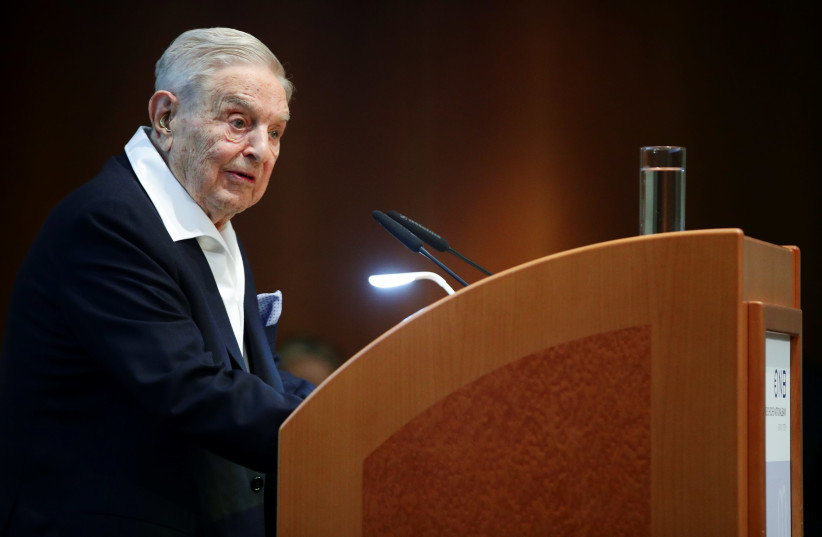

:quality(70)/cloudfront-eu-central-1.images.arcpublishing.com/thenational/R74GTZFH6ZCA2WY4COGG3CR5HY.jpg)
:quality(70)/cloudfront-eu-central-1.images.arcpublishing.com/thenational/FZENXZ3ARGMRFZ7D2K5RGGLMDE.jpg)
